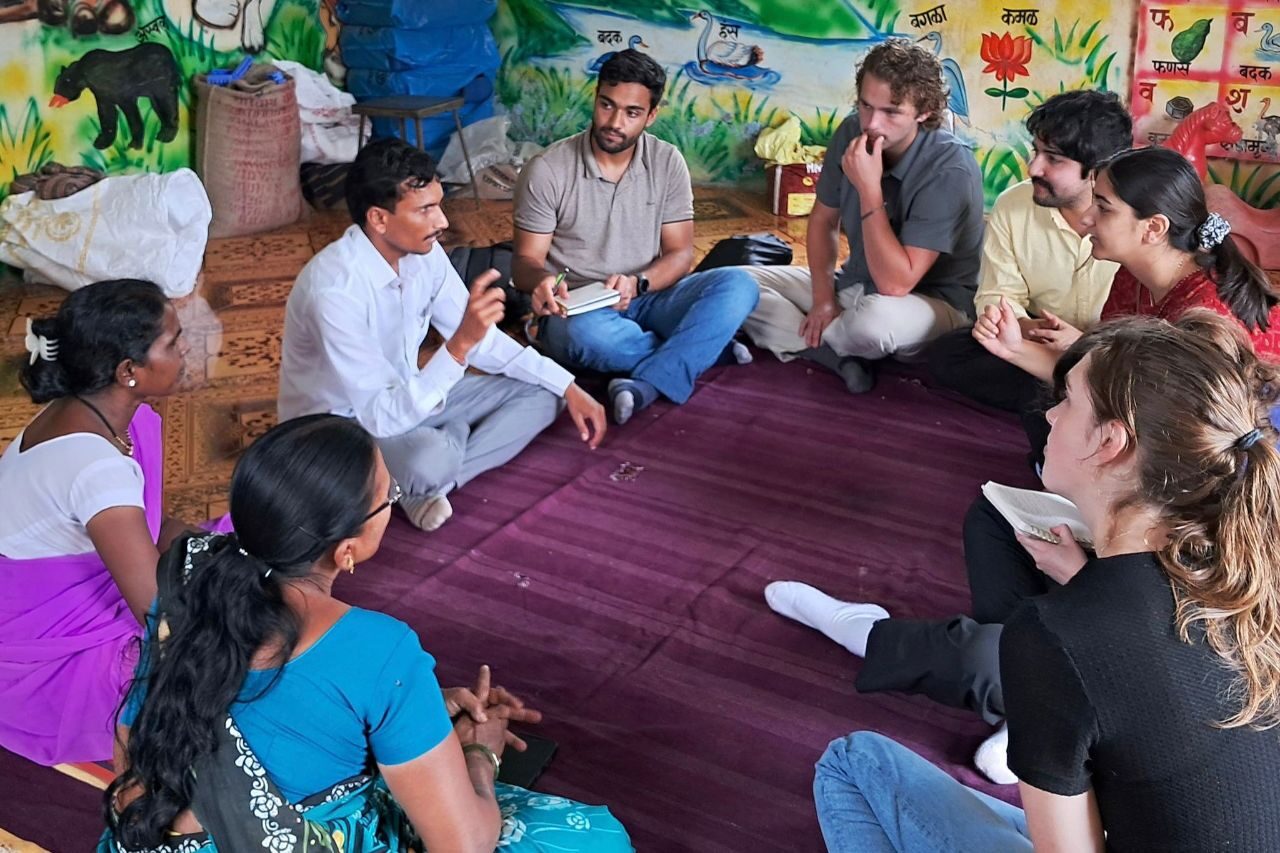
Create
Design Project Gallery
AI-Supported Adaptive History-Taking for Telemedicine: Enhancing CHW Efficiency and Diagnostic Accuracy in Rural India
- Program: Biomedical Engineering
- Course: EN.580.620 Principles and Practice of Global Health Innovation and Design
- Year: 2025
Project Description:
India faces major healthcare access challenges, especially in rural areas with limited doctors and long travel times. Telemedicine bridges this gap, but current clinical history-taking at the community level is inefficient—CHWs often collect lengthy, unfocused histories before connecting with hub doctors. Our project leverages AI and Large Language Models (LLMs) to create an adaptive, efficient history-taking tool that guides CHWs to ask relevant questions based on patient responses. This system reduces consultation time, improves information quality, and helps doctors make quicker, more accurate decisions. We are developing and optimizing this tool using agent-based simulations and prompt engineering, and will evaluate its performance with both expert clinical reviewers and in a real-world pilot in rural Nashik, India. This innovation aims to enhance care quality, reduce delays, and ultimately scale across India’s public telemedicine ecosystem, including eSanjeevani.
Project Photo:
Listening to community needs is essential for effective telemedicine in rural India. Solutions must start with the local context, shaped by the realities of patients and providers on the ground. Grounded in empathy and relevance, innovation begins by understanding those it aims to serve.
Course Faculty
- Soumya Acharya MD, PhD, Program Director, CBID
- Youseph Yazdi PhD, MBA, Executive Director, CBID
- Aditya Polsani DDS, MSc, Director of Business Development, CBID
- Neha Verma PhD, Co-Founder and CEO, Intelhealth
- Luis Soenksen PhD, Head of Technology Integration, OXMAN
- Samson Jarso PhD, Adjunct Professor, EP, Johns Hopkins Whiting
- Adler Archer JD, MS, Associate Research Scientist, Johns Hopkins Whiting
- Sandhya Tiku, Teaching Assistant, CBID

